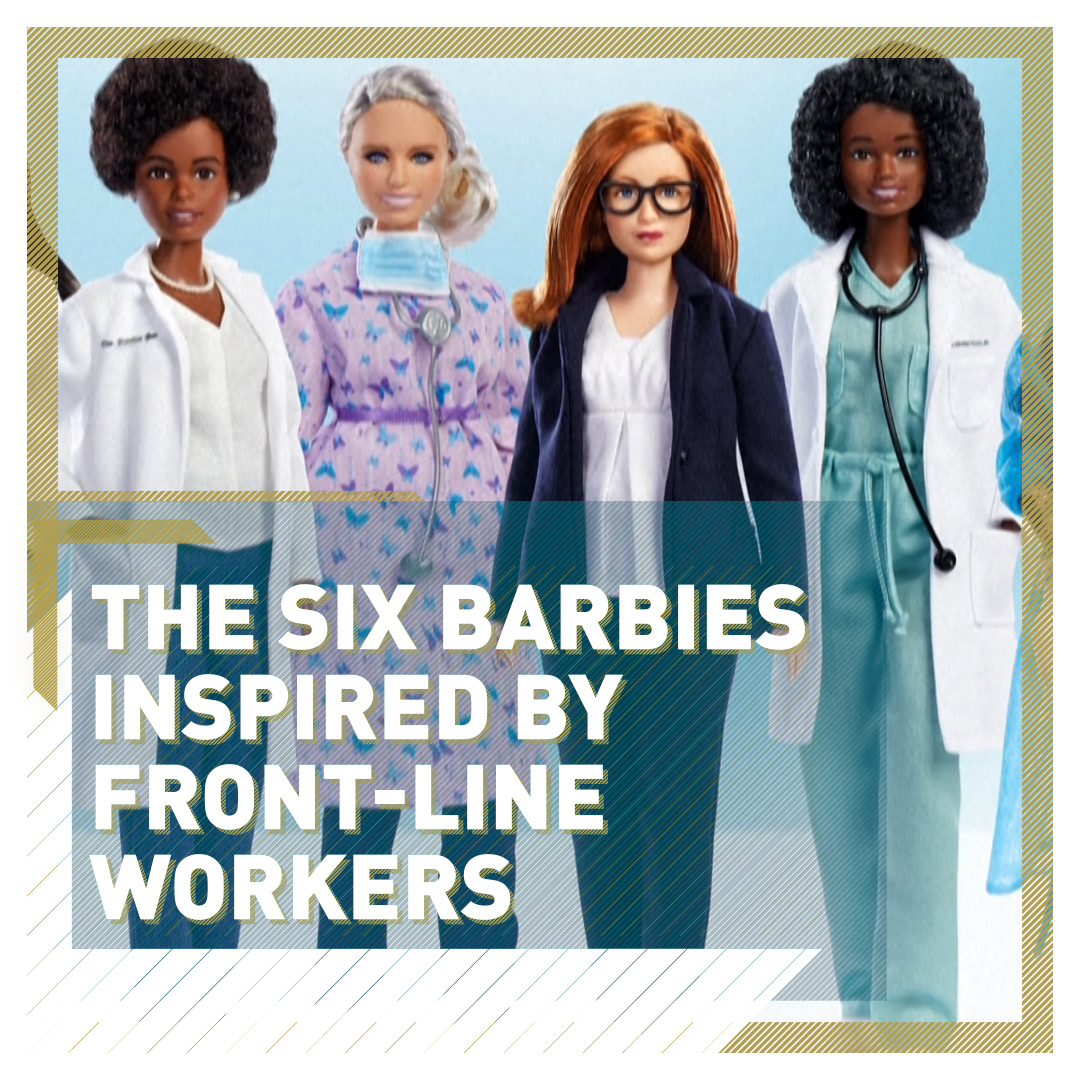00:53

Even as a professor at the University of Oxford, Sarah Gilbert couldn't have known in early 2020 what her future held in store. The world would face a deadly pandemic, she would help lead the effort to create a vaccine... and then Barbie would design inspirational dolls based on her and five other female pandemic heroes.
Gilbert is a professor of vaccinology who was the head of development of the AstraZeneca vaccine. Now Mattel, the toy company that makes Barbie, has designed dolls after her and five other women, each a frontline worker who showed "unprecedented courage" during the early stages of the pandemic.
"Barbie recognizes that all frontline workers have made tremendous sacrifices when confronting the pandemic and the challenges it heightened," said Lisa McKnight, senior vice president and global head of Barbie and Dolls at Mattel.
"To shine a light on their efforts, we are sharing their stories and leveraging Barbie's platform to inspire the next generation to take after these heroes and give back."

The Barbie dolls designed after the six heroic women. /Mattel
The Barbie dolls designed after the six heroic women. /Mattel
Each doll is wearing its inspiration's day-to-day work clothes. Gilbert's doll is dressed in a pantsuit and has oversized black glasses. The other dolls are wearing various scrubs.
"It's a very strange concept to have a Barbie doll created in my likeness," Gilbert said.
"I hope it will be part of making it more normal for girls to think about careers in science – although to be honest, when I was a young girl, I never believed that I wouldn't have a career in science."

Audrey Sue Cruz, a nurse in Nevada, U.S., joined forces with other Asian-American physicians to fight racial bias. /Mattel
Audrey Sue Cruz, a nurse in Nevada, U.S., joined forces with other Asian-American physicians to fight racial bias. /Mattel

Sarah Gilbert, of the UK's Oxford University, led the drive to create a vaccine. /Mattel
Sarah Gilbert, of the UK's Oxford University, led the drive to create a vaccine. /Mattel

Brazil's Jaqueline Goes de Jesus led the sequencing of the genome for a lethal COVID-19 variant first identified in her home country. /Mattel
Brazil's Jaqueline Goes de Jesus led the sequencing of the genome for a lethal COVID-19 variant first identified in her home country. /Mattel

Amy O'Sullivan, an ER nurse in New York, U.S., returned to work just two weeks after coming off a ventilator. /Mattel
Amy O'Sullivan, an ER nurse in New York, U.S., returned to work just two weeks after coming off a ventilator. /Mattel

Chika Stacy Oriuwa, a psychiatry resident in Toronto, Canada, is an advocate against systemic racism in healthcare. /Mattel
Chika Stacy Oriuwa, a psychiatry resident in Toronto, Canada, is an advocate against systemic racism in healthcare. /Mattel

Kirby White, of Bendigo, Australia, developed a reusable PPE gown. /Mattel
Kirby White, of Bendigo, Australia, developed a reusable PPE gown. /Mattel
Gilbert is not the only scientist in the group of six women. Jaqueline Goes de Jesus from Brazil is a biomedical researcher who led the sequencing of the genome of a COVID-19 variant in Brazil.
Amy O'Sullivan is the emergency room nurse who treated the first COVID-19 patient in Brooklyn, New York. She became sick herself and had to be intubated – but returned to work just two weeks later.
Kirby White, of Bendigo in Australia, co-founded of the Gowns for Doctors initiative which has developed reusable PPE.
Both Audrey Sue Cruz and Chika Stacy Oriuwa are fighting against racial prejudice. Cruz, a nurse in Nevada, U.S., "joined forces with other Asian-American physicians to fight racial bias and discrimination," while Oriuwa – a psychiatry resident in Toronto, Canada – is also an advocate against systemic racism in healthcare.
Video editor: Pedro Duarte

